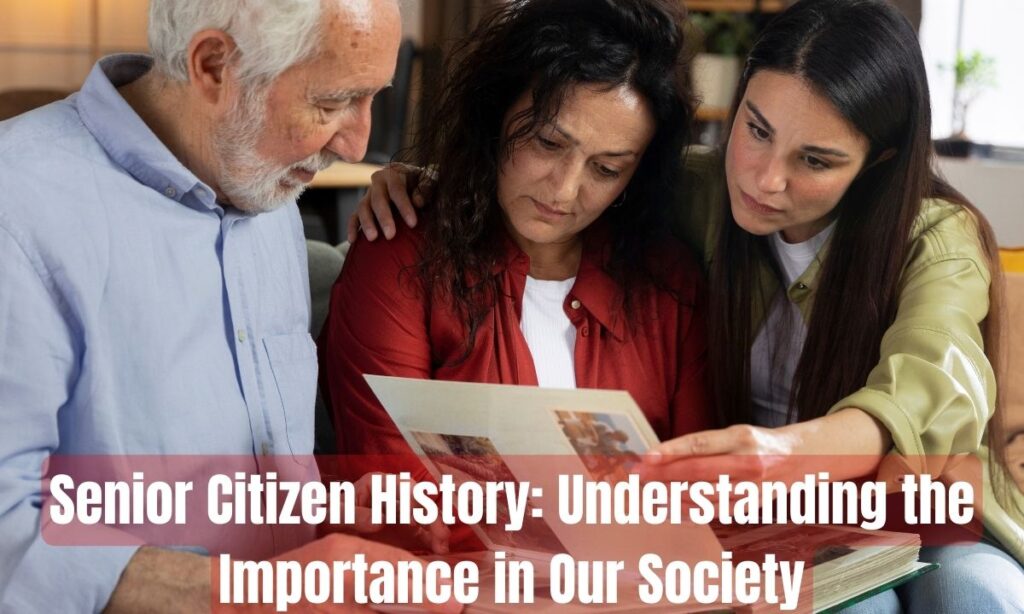Introduction:
Senior citizens play an important role in our society, as they are the foundation upon which our communities are built. Their experiences, struggles, and knowledge have enriched the society over time. Understanding their past helps us respect their importance and encourages us to provide them with the support and respect they deserve. Old age is a stage where individuals face the challenges and attractions of life with increased self-confidence. In this article, we will examine the importance of aging and the importance of dedicated services for the elderly to enhance their well-being.
Table of Contents
ToggleWho are the senior citizens?
An older citizen is a person who is in the final stages of life. This stage generally occurs at the age of 60 years or more. Older citizens play an important role in the society and enjoy respect and support in various sectors of the society.
Different agencies and organizations may have varying definitions of the senior citizen age based on factors like retirement age, eligibility for benefits, and social programs.
Here are some common age thresholds for senior citizens according to various agencies:
- World Health Organization (WHO): WHO typically considers individuals aged 60 years and above as senior citizens. However, this may vary depending on the context and region.
- United Nations (UN): The United Nations generally defines senior citizens as individuals aged 60 years and above.
- Social Security Administration (SSA) (United States): For eligibility purposes, the SSA defines full retirement age as 66 to 67 years, depending on the year of birth. However, individuals as young as 62 years old can start receiving reduced benefits.
- European Union (EU): The EU does not have a unified definition of senior citizens. Each member state may have its criteria for determining the age at which individuals qualify for senior benefits or services.
- Government of India: In India, senior citizens are typically defined as individuals aged 60 years and above, according to various government programs and benefits such as tax exemptions and pension schemes.
Importance of old age
Senior citizens’ age is a time when individuals gain wisdom and experience care as they extend their lives. This is the time in their life when they can take more time to spend with their family and enjoy all aspects of life. In this stage, they have the freedom to enjoy time and share it with society.
Challenges Faced by Senior Citizens:
Despite their contributions, older adults often face a variety of challenges that can affect their quality of life. Serious health problems such as complex illnesses, limited mobility, and mental decline are common problems among older people. Financial insecurity can also be a major challenge, especially for those without sufficient savings or retirement funds. Additionally, social isolation and loneliness are common among older adults, especially those living alone or with limited social relationships.
Addressing the Needs of Senior Citizens
Society needs to recognize the needs of older citizens. This should ensure access to quality health care, affordable housing options, and social support networks. Community-based programs and initiatives that address healthy living, such as senior centers, exercise classes, and volunteer opportunities, can help the overall well-being of older citizens.
Role of family and caregivers

Families and carers have an important role to play in supporting older citizens. Providing emotional support, assistance with daily tasks, and access to medical care are important functions. Carers should pay attention to their health and seek support if necessary, as caregiving can be physically and mentally challenging.
Promoting inclusiveness and respectability
It is important to provide dignity, respect, and inclusivity to older citizens. Discrimination based on age, age discrimination, and social discrimination will be actively expected. By valuing the contributions and experiences of older citizens, we can make our society more compassionate and inclusive.
Services for the elderly
People require different types of services as they age. These services provide them the care and support they need to live their lives better.
1. Medical Services: Older people should have access to regular medical checkups and treatment. They should take advice from expert doctors to take care of their health.
- Social interaction: Social interaction is very important for the elderly. They should get the opportunity to participate in social activities, which connects them with society and boosts their morale.
- Food and Nutrition: Older people need proper nutrition and healthy foods. They should include fruits, vegetables, grains, etc. in their diet.
- Entertainment: There should be opportunities for entertainment for the elderly. It allows them to spend recreational time, boosting their morale.
- Comfort and proper accommodation: The elderly should have access to comfortable and safe accommodation. They should have the right to live in comfortable accommodation, which makes their life pleasant.
Society for the Elderly:

The elderly need respect and support in society. They need to be respected by members of society and their experiences need to be understood and evaluated.
Conclusion
Old age is an important stage in which individuals enjoy all their life achievements. Therefore, we need to provide dedicated services for their care and support. It is our social responsibility to respect elders and maintain good relations with them.
In conclusion, older citizens are an integral part of our society and deserve our respect, honor, and support. By addressing the challenges they face and meeting their needs, we can ensure that older citizens grow with dignity and continue to enrich our community with their knowledge and presence. Let us embrace the valuable contributions of older citizens and strive to establish a society where people of any age can live rich and fulfilling lives.
FAQs on Senior Citizen
What is senior citizen history?
Senior citizen history refers to the collective experiences, contributions, and challenges faced by elderly individuals throughout their lives. It encompasses their roles, achievements, and impact on society.
.
Why is understanding senior citizen history important?
Understanding senior citizen history helps us recognize the significant contributions made by elderly individuals to society. It provides insight into the evolution of com
What role do senior citizens play in our society?
Senior citizens are the pillars of our society, offering wisdom, guidance, and support to younger generations. They contribute to community development, pass down cultural traditions, and serve as role models for future generations.
How does senior citizen history enrich our society?
Senior citizen history enriches our society by preserving cultural heritage, sharing valuable life lessons, and fostering intergenerational connections. It promotes respect, empathy, and inclusivity across different age groups.
What are some examples of senior citizen contributions to society?
Senior citizens contribute to society in various ways, such as volunteering, mentoring, and participating in community activities. They also play active roles in family life, childcare, and preserving local traditions
How can we support and honor senior citizens in our society?
We can support senior citizens by promoting age-friendly policies, advocating for their rights, and providing access to healthcare, social services, and recreational activities. Showing respect, gratitude, and appreciation for their contributions is also important.
What challenges do senior citizens face in society?
Senior citizens may face challenges such as ageism, social isolation, financial insecurity, and health issues. Lack of accessibility to services and discrimination based on age can also impact their quality of life.
How can we promote understanding and respect for senior citizen history?
Promoting intergenerational dialogue, organizing educational programs, and sharing personal stories can help raise awareness about senior citizen history. Emphasizing the importance of preserving their legacy and valuing their experiences fosters respect and appreciation.












